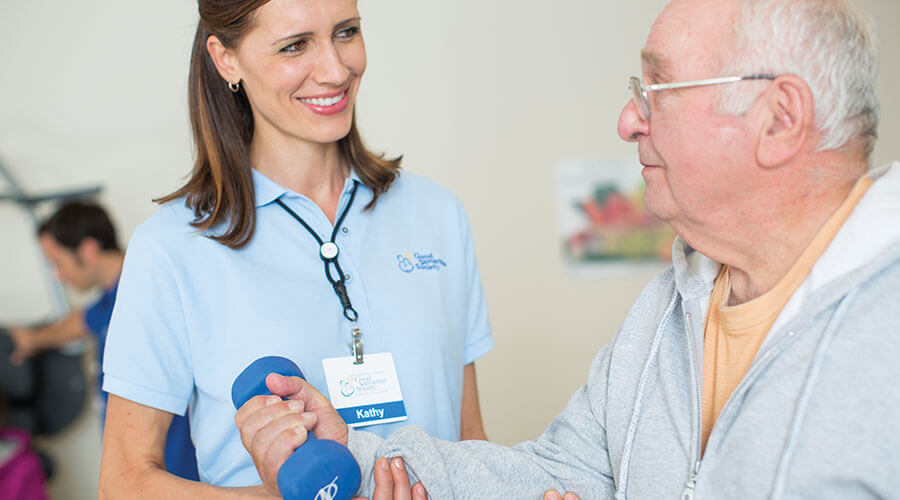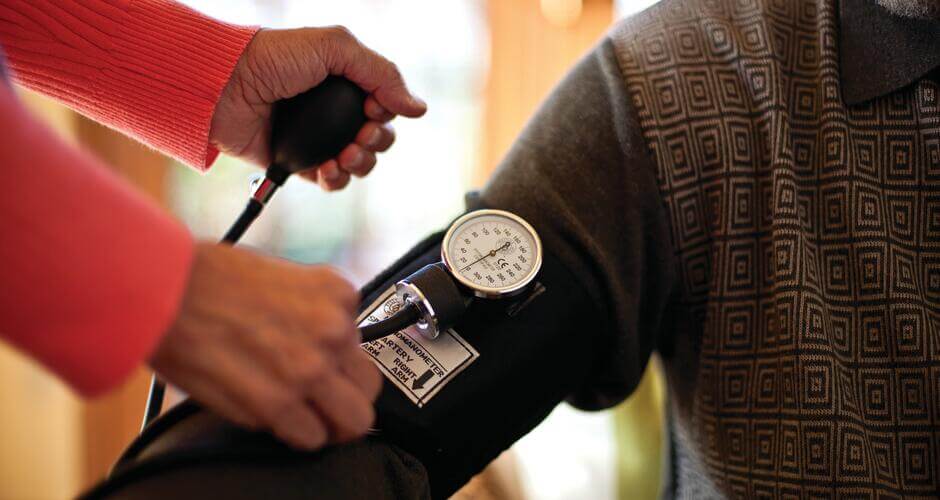Cardiac rehab programs help people who have heart disease or those who have experienced a heart attack or had heart surgery. While older adults typically seek this type of rehab therapy, it can also benefit younger individuals with certain heart conditions, such as congenital heart disease.
Your health care provider will refer you for cardiac rehab if you meet the necessary criteria. Cardiac rehab is designed to improve heart recovery and help patients heal faster so they can get back to living.
The amount of time cardiac rehab takes varies depending on each patient’s medical condition, response to treatment, and the specific structure of the rehab program. Your cardiac rehab program may start while you are in the hospital or soon after you are discharged.
Who does cardiac rehab help?
Cardiac rehab may help if you have certain heart conditions or if you’ve had specific heart procedures. These include:
- Angioplasty (with or without a stent)
- Bypass surgery
- Coronary artery bypass grafting (CABG) surgery
- Heart attack
- Heart failure
- Heart or heart-lung transplant
- Heart valve repair or replacement
- Peripheral artery disease
- Stable angina
Who is part of a cardiac rehab team?
Many different health care providers help with cardiac rehab. They include:
- Cardiac nurse: These nurses have special training to care for people with heart problems.
- Case manager or social worker: This person helps with planning care. They may do this in the hospital, in a long-term care center or in your home.
- Occupational therapist: This specialist is trained to help improve how well you can do your daily tasks.
- Physical therapist: This specialist is trained to help improve how you move to ease your pain and improve your physical ability.
- Primary care provider: This includes internists and family practice providers.
- Psychologist or psychiatrist: These providers help with mental health issues. They can help you cope with the daily stress of long-term health problems.
- Registered dietitian or nutritionist: This person has special training in healthy eating and in diets for people with heart problems and other health conditions.
- Specialists: This may include an expert in diagnosing and treating heart disease (cardiologist), a heart surgeon (cardiovascular or cardiothoracic surgeon), and rehabilitation specialist (physiatrist).
Benefits of cardiac rehabilitation programs
Older adults who have experienced a heart-related event or undergone cardiac procedures can benefit from cardiac rehab programs in several ways:
- Improved cardiovascular health
Exercise training: Cardiac rehab programs typically include supervised exercise sessions. For seniors, regular, structured exercise helps improve cardiovascular fitness, strengthen the heart muscle, and enhance overall endurance.
Risk factor management: Seniors often have multiple risk factors for cardiovascular disease. Cardiac rehab addresses these factors through education and interventions, including strategies for managing hypertension, diabetes and high cholesterol. - Enhanced quality of life
Symptom management: Seniors may experience symptoms such as shortness of breath or fatigue. Cardiac rehabilitation helps manage these symptoms through tailored exercise programs and education on energy conservation.
Psychosocial support: The emotional and psychological impact of a cardiac event can be significant for seniors. Cardiac rehab programs often include counseling and support groups to address the mental health aspects of recovery. - Medication management: Seniors are often prescribed multiple medications. Cardiac rehab programs provide education on the importance of medication adherence, potential side effects and interactions to ensure proper management of cardiovascular health.
- Disease education: Seniors may benefit from a deeper understanding of their heart condition. Cardiac rehabilitation programs offer education on heart disease, its causes, and strategies to prevent future cardiovascular events.
- Social interaction: Seniors can benefit from the social aspect of cardiac rehab programs. Being part of a supportive community of individuals with similar experiences can provide motivation, encouragement, and a sense of belonging.
- Risk reduction: Cardiac rehabilitation focuses on reducing the risk of future cardiac events. This includes lifestyle modifications, such as adopting a heart-healthy diet, participating in physical activity, quitting smoking and maintaining a healthy weight.
- Customized approaches: Cardiac rehab programs can be adapted to meet the specific needs and limitations of seniors. Exercise regimens can be modified to accommodate mobility issues or other health concerns commonly associated with aging.
- Monitoring and feedback: Continuous monitoring during cardiac rehab allows for ongoing assessment of the patient’s progress. This enables health care professionals to make necessary adjustments to a rehabilitation plan.
A cardiac rehabilitation program can offer a comprehensive and multidisciplinary approach to improving the cardiovascular health of seniors.
By addressing physical, emotional and social aspects of recovery, these programs play a crucial role in enhancing the overall well-being and quality of life for seniors following a cardiac event.
Learn more about rehab therapy at the Good Samaritan Society.




